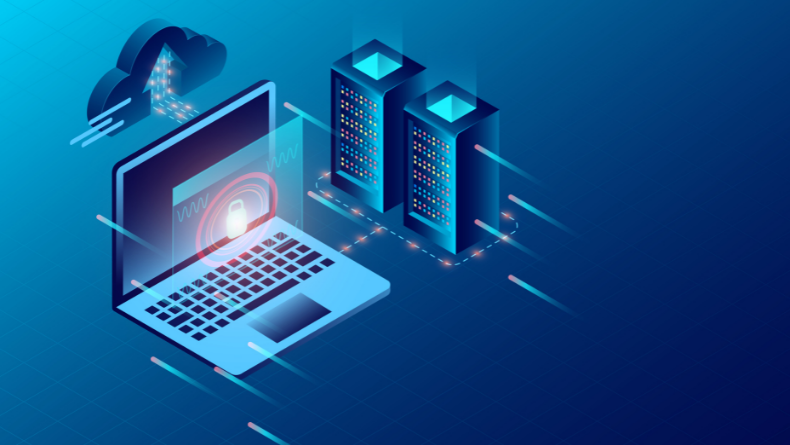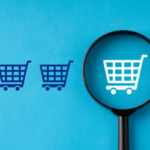- 29 July 2022
- Business, Technology
The days when everything had to be on paper and you had to spend countless hours sifting through hundreds of invoices and piles of purchase orders, and receipts are behind us.
The introduction of technology and computer systems in the modern business world today has allowed us to use various software for the purpose of management, administration, and easier accounting of a company.
In fact, if you’re a small business owner or sole trader, you may already be using some type of software to make your job easier. But since technology is constantly changing and developing, one of the most important things is to find the most suitable solution for your company. Namely – the right software for your business.
What is business software?
Business software is any business application or set of computer programs that meet the specific needs of an individual or a company.
The development of one business software consists of the design, creation, implementation, and maintenance of a dedicated system (software) intended solely for internal company use and not for resale. Unlike the use of commercial software, the development of such a system is usually aimed at solving the specific problems and needs of each business.
Using business software for your company helps you achieve your goals by improving the way you operate through the applied principles that the software supports. This system is used to increase productivity by simplifying the work process, eliminating duplication of company data, and enabling faster execution of other business functions. It contributes to building a positive work environment when working in a team, increases the quality of work, and improves efficiency.
What are the benefits of using business software?
Business software serves different purposes, depending on the needs of each business, and the most recommended option when choosing the best solution for your company is always a custom solution. Developing software tailored to perfectly fit your unique requirements is not new, but it is becoming increasingly necessary. And it comes with many pluses and advantages. Some of these advantages include:
- Reduces costs and time consumption by automating boring and routine tasks
- Improves efficiency and productivity in the office
- Enables the management of business tasks at any time and place
- Allows rational business operations and accounts
- Gives control over your inventory such as products, machinery, and equipment
- Allows better control over your expenses and income
There are plenty of commercial business solutions that most companies can use instead of spending money on custom software. While many business owners might not feel the need to create custom enterprise software, especially in the beginning, it has been proven that when software is designed to meet a company’s specific needs, it can accelerate its efficiency and productivity, surpassing even its competitors.
When does one company need business software?
It is not always easy to determine if your way of working and managing needs improvement. Some of the signs that you should consider using a custom enterprise solution for your company are:
- Slow execution of work tasks subject to automation
- Frequent mistakes when entering company data manually
- The use of old software that is not integrated with other systems you use
- The increase in manual administration and business activities in the company
- Looking for new ways to improve and engage your customers
Switching to new software that perfectly suits your requirements is a big step for most businesses. But it is the only solution to ensure the continued success of your company.
How to choose the right business software according to your needs?
Before choosing the right software, you must first identify your problems and how having a custom system will solve them.
Typically, there are two types of business options that any company can choose from – ERP (Enterprise Resource Planning), which is primarily used for financial data and administrative purposes, and CRM (Customer Relationship Management), designed to record and store data about customer interactions and inbound marketing.
Successful companies use both options to maximize profits and business growth, but the question often comes down to which system to implement first. This can be a difficult decision for any business because each one of them offers unique and irreplaceable advantages.
How does ERP software help your business?
ERP, also called enterprise resource planning software, supports every aspect of a business’s operations – from sales and marketing to order management, distribution, and more. Common features of ERP software include:
- Accurate future business predictions and decisions, supported by past data
- Production, delivery, and distribution planning
- Inventory, resources, and parts management
- Faster financial close and accounting
- Marketing and sales optimization
- Reduced financial risk
ERP systems bring much greater financial control to any organization. They can take the form of a single software package or multiple software applications from different vendors, integrated to work together with each other.
How does CRM software help your business?
CRM, short for customer relationship management software, is mainly used by your marketing/sales team, responsible for increasing the number of your sales, and overall business development. This type of software solution is suitable for your company if you need to:
- Track customers and their purchasing behavior
- Identify new marketing opportunities
- Automate marketing processes such as email marketing or online advertising campaigns
- Manage your Social Media accounts and campaigns
CRM systems manage communication details and track engagement so sales reps know where to focus their business focus and development.
Is it possible to integrate a combination of ERP and CRM software?
Every growing company, from small and medium businesses to large enterprises, needs both an ERP and a CRM system to thrive. Regardless of which system you use, in most cases, it is possible to integrate both solutions for your business. To work successfully, the two systems must be able to share information through technical integration with the existence of two sets of data that must be maintained separately.
There is also the option of purchasing a unified system. Developing an ERP system with CRM built into the platform is usually cheaper than building both systems separately. In such a system, all information is updated in real-time without having to wait for a bulk upload. This provides a simpler and faster way to run your business processes – allowing you to focus your time where it’s needed.
If you’re looking for a system that’s right for you and your business, and you need a trusted partner who can help you implement it, Sitewab is here to not only meet but exceed your expectations.




